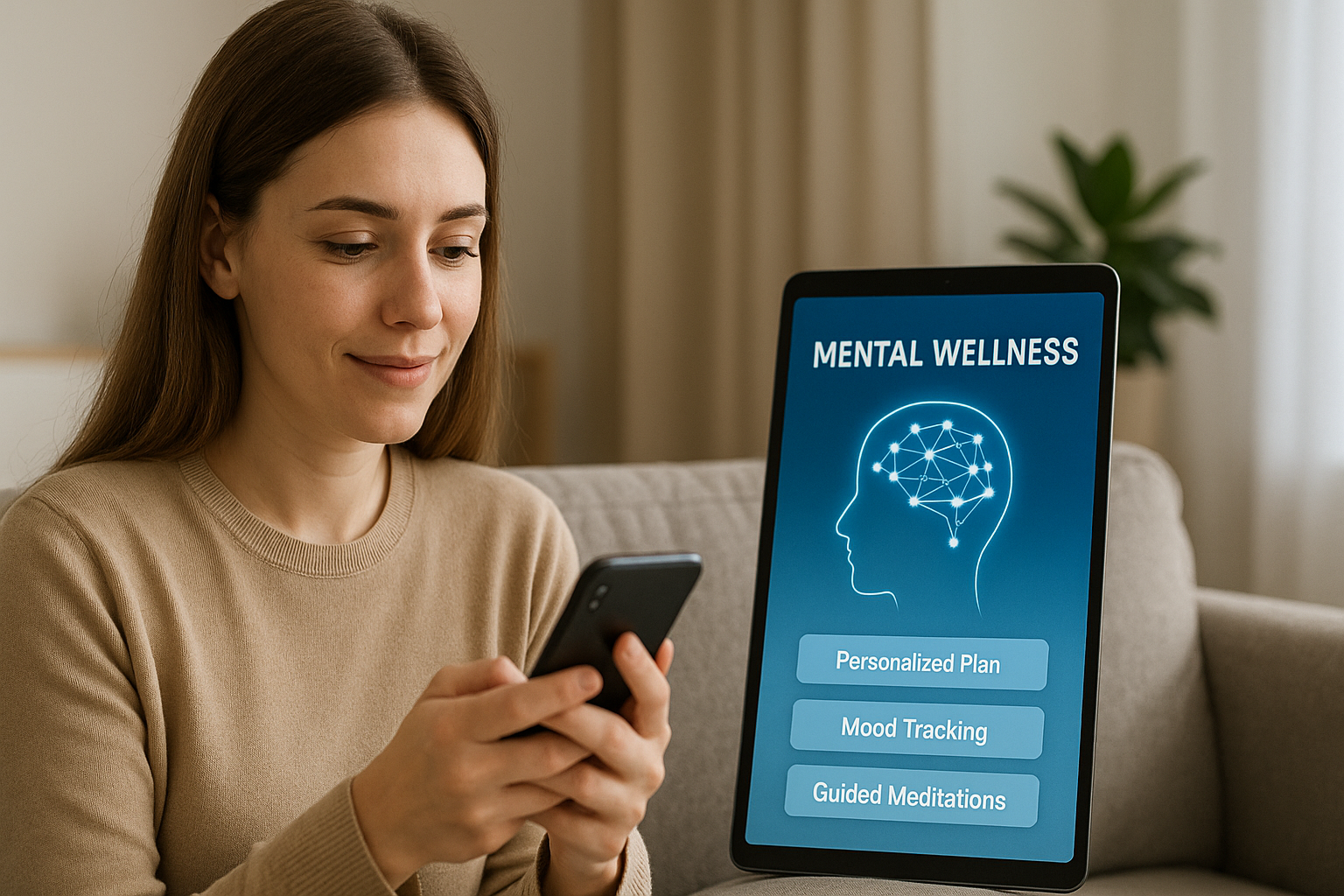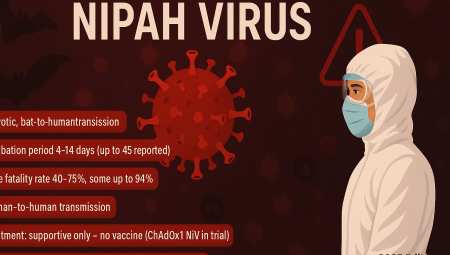In an increasingly demanding world, maintaining robust mental well-being isn’t just an aspiration—it’s a necessity. While traditional mental health resources remain vital, the digital landscape has introduced powerful new allies: AI-powered personalized mental wellness apps. These aren’t your average meditation timers; they’re sophisticated platforms leveraging artificial intelligence to offer tailored support, adaptive exercises, and real-time insights designed to meet your unique emotional and cognitive needs. In 2025, these innovative tools are reshaping how we approach self-care, stress management, and emotional resilience.
This comprehensive guide will dive into the burgeoning world of AI-powered personalized mental wellness apps. We’ll explore how artificial intelligence is revolutionizing the delivery of well-being support, dissect the key features that make these apps truly personal, and highlight five leading examples that are setting new standards. Whether you’re looking to reduce stress, improve sleep, manage anxiety, or simply enhance your daily mindfulness, understanding how these intelligent companions work is your first step towards a more balanced and fulfilling life.
The AI Revolution in Mental Wellness: Beyond One-Size-Fits-All
Why Personalized Mental Wellness? The AI Advantage
The human experience is inherently unique, and so too are our mental wellness journeys. Generic advice or pre-recorded sessions, while helpful, often fall short in addressing individual nuances. This is where AI-powered personalized mental wellness apps step in. Unlike traditional apps, AI allows for:
- Adaptive Learning: The app learns from your interactions, mood logs, biometric data (if connected), and progress, tailoring recommendations and exercises to your specific profile.
- Real-time Support: AI chatbots can offer conversational support, guided exercises, or coping mechanisms precisely when you need them.
- Predictive Insights: Some advanced AI models can identify patterns in your behavior or mood data, potentially helping you anticipate and manage challenging periods.
- Scalability and Accessibility: AI allows for highly customized support to be delivered to millions, breaking down traditional barriers to mental wellness resources.
The Science of AI Personalization: How It Works
At their core, AI-powered personalized mental wellness apps use complex algorithms and machine learning models to process vast amounts of data. This typically involves:
- Natural Language Processing (NLP): For understanding text input from mood journals, chat conversations, or voice notes, allowing the AI to gauge emotional tone and content.
- Machine Learning (ML): To identify patterns in user data (e.g., correlations between sleep quality and mood, or stress levels and activity patterns), enabling the app to adapt and personalize content.
- Recommender Systems: Similar to streaming services, these systems suggest specific meditations, exercises, or articles based on your past preferences, stated goals, and real-time emotional state.
- Biometric Integration: Many apps integrate with wearables (smartwatches, rings) to incorporate sleep data, heart rate variability, and activity levels into their personalization algorithms, providing a holistic view of your well-being. According to a 2024 report by Deloitte, over 65% of consumers in developed markets now use wearables, creating a rich data stream for these apps.
The Core Functions: What AI-Powered Personalized Mental Wellness Apps Offer
The functionalities of AI-powered personalized mental wellness apps are diverse, but they generally revolve around several key areas:
1. Adaptive Meditation & Mindfulness
How do AI-powered apps personalize meditation experiences?
Traditional meditation apps offer a library of guided sessions. AI-powered personalized mental wellness apps, however, go further. They can analyze your stress levels (via self-report or biometrics), attention span, and previous session feedback to recommend the ideal meditation length, style (e.g., body scan, breathwork, visualization), and even the voice or background sound that best suits your current state. Some AI mental wellness coaches can even offer real-time feedback on your breathing patterns or posture using device sensors, guiding you towards deeper states of calm.
2. Personalized Mood Tracking & Journaling
What’s new in AI-driven mood tracking and journaling for wellness?
Beyond simple mood logging, AI can provide deeper insights. These apps use NLP to analyze your journal entries, identifying recurring themes, emotional triggers, and shifts in your thought patterns. Instead of just logging “sad,” the AI might notice specific words indicating feelings of isolation or frustration, then suggest tailored coping strategies or relevant resources. They can also offer personalized prompts for journaling, helping you explore specific feelings or challenges that the AI identifies as important for your well-being.
3. Smart Sleep Optimization
How does AI help in achieving better sleep for mental well-being?
Sleep is a cornerstone of mental health. AI-powered personalized mental wellness apps integrate sleep tracking data (from wearables) with your daily activities, mood, and stress levels. The AI can then identify patterns that disrupt your sleep, such as late-night caffeine or inconsistent bedtimes. It can then offer highly personalized interventions, like a custom bedtime routine, targeted sleep meditations, adaptive soundscapes, or gentle reminders to wind down, all designed to improve your sleep hygiene and duration. According to a 2025 forecast by Grand View Research, the global sleep tech market is expected to reach $29.8 billion by 2030, heavily driven by AI integration.
4. Conversational AI Coaching
Can AI truly act as a mental wellness coach?
Yes, to a significant extent. Many AI-powered personalized mental wellness apps feature conversational AI chatbots designed to simulate supportive coaching. These bots can engage in empathetic dialogue, guide you through cognitive restructuring exercises (challenging negative thoughts), help you practice emotional regulation techniques, or simply act as a non-judgmental listener. While not a replacement for human therapy, these AI mental wellness coaches provide accessible, on-demand support for managing daily stressors and practicing healthy coping mechanisms.
5. Habit Building & Goal Setting with AI Support
How do AI apps assist in building healthy mental wellness habits?
Building sustainable habits is challenging. AI helps by creating highly personalized habit plans based on your past success rates, daily schedule, and stated goals. For instance, if the AI detects you’re more likely to meditate in the morning, it will suggest that time. It can send adaptive reminders, provide positive reinforcement, and adjust goals based on your progress, making the journey towards consistent mental wellness practices more attainable and less overwhelming.
5 Leading AI-Powered Personalized Mental Wellness Apps (2025 Spotlight)
While the market is rapidly evolving, here are five types of leading AI-powered personalized mental wellness apps that exemplify the future:
- “MindFlow AI”: Known for its deep emotional AI, offering advanced sentiment analysis of journal entries and highly adaptive guided meditations that respond to your real-time mood shifts.
- “SomniaSync”: A dedicated sleep optimization app leveraging AI to analyze sleep stages, environmental factors, and daily activity to curate personalized soundscapes, guided breathwork, and pre-sleep routines for perfect rest.
- “CognitoCoach”: Specializes in AI-driven CBT (Cognitive Behavioral Therapy) exercises. Its conversational AI guides users through thought challenging, reframing negative self-talk, and provides real-time feedback on cognitive distortions.
- “Embrace Resilience”: Focuses on stress and anxiety management, using AI to identify personal stress triggers through activity patterns and self-reports, then delivers tailored breathing exercises, progressive muscle relaxation, and personalized affirmations.
- “NeuroHarmony”: An innovative app utilizing AI to recommend brain-training games and neurofeedback-like exercises designed to improve focus, memory, and cognitive resilience, adapting difficulty based on your performance.
Conclusion: Empowering Your Mind with Intelligent Technology
The rise of AI-powered personalized mental wellness apps marks a significant turning point in accessible mental health support. These intelligent tools are moving beyond generic solutions, offering tailored, adaptive, and proactive strategies that meet you exactly where you are on your well-being journey. By harnessing the power of artificial intelligence, these apps provide on-demand support for stress, sleep, emotional regulation, and cognitive enhancement, making a profound impact on millions of lives.
As technology continues to advance, the symbiotic relationship between AI and human well-being will only deepen. Embracing these innovative applications isn’t just about managing symptoms; it’s about proactively cultivating a stronger, more resilient mind, empowering you to navigate the complexities of life with greater ease and clarity. Are you ready to harness the power of AI for your personalized mental wellness?
💼 Pro Tips: Maximizing Your AI Mental Wellness App Experience
- Tip 1: Be Honest with Your Data: For the AI-powered personalized mental wellness app to truly adapt, provide accurate and honest input about your mood, experiences, and feedback. Garbage in, garbage out applies here.
- Tip 2: Integrate with Wearables: Connect your app with smartwatches or other health trackers (if supported). The AI can leverage passive data (heart rate variability, sleep stages, activity levels) to provide even more accurate and personalized recommendations.
- Tip 3: Set Clear Goals: Before you start, identify what you want to achieve (e.g., reduce stress by 20%, improve sleep by 1 hour, practice mindfulness daily). Clear goals help the AI tailor its suggestions and help you track progress.
- Tip 4: Don’t Replace Therapy (If Needed): Remember that AI-powered personalized mental wellness apps are support tools, not substitutes for professional therapy or medical advice, especially for clinical mental health conditions. If you’re struggling, consult a licensed mental health professional.
- Tip 5: Experiment and Explore: Don’t stick to just one feature. Explore all the AI-driven tools the app offers – from conversational coaching to adaptive meditations or personalized habit builders – to find what resonates most with you.
- Tip 6: Review Privacy Policies: Given the sensitive nature of mental wellness data, always read and understand the app’s privacy policy. Ensure your data is secure, anonymized, and not shared without your explicit consent.
❓ Frequently Asked Questions (FAQ)
How do AI-powered personalized mental wellness apps differ from traditional meditation apps?
AI-powered personalized mental wellness apps go beyond traditional meditation apps by offering adaptive content. While traditional apps provide static libraries of meditations or exercises, AI apps learn from your unique data (mood, biometrics, interactions) to dynamically recommend specific sessions, adjust duration, tailor content, and even offer conversational support that evolves with your needs, making the experience truly personal.
Are AI mental wellness coaches safe and effective?
AI mental wellness coaches are designed to be safe and are generally effective for managing mild to moderate stress, improving emotional regulation, and building healthy coping habits. They provide accessible, on-demand support. However, they are not substitutes for licensed human therapists and should not be used for diagnosing or treating clinical mental health disorders. Their effectiveness lies in their ability to provide personalized, consistent, and proactive self-care tools.
What kind of data do AI-powered mental wellness apps collect?
AI-powered personalized mental wellness apps typically collect various types of data, including self-reported mood and symptom logs, journaling entries (which are analyzed by NLP), interaction patterns within the app, and often, with user permission, biometric data from connected wearables (e.g., heart rate, sleep patterns, activity levels). This data is primarily used to personalize the user’s experience and tailor recommendations.
What are the ethical concerns surrounding AI in mental health apps?
Ethical concerns around AI in mental health apps primarily revolve around data privacy and security, as sensitive personal information is often collected. There are also concerns about algorithmic bias (if the AI isn’t trained on diverse data sets), the potential for over-reliance on AI rather than seeking human help, and the transparency of how AI makes its recommendations. Reputable apps prioritize user privacy, explain their AI’s limitations, and encourage professional consultation when needed.
Can these apps help with severe mental health conditions like depression or anxiety disorders?
While AI-powered personalized mental wellness apps can be a supportive tool for individuals experiencing mild to moderate symptoms of stress, anxiety, or low mood, they are not designed to diagnose or treat severe mental health conditions like major depressive disorder, generalized anxiety disorder, or other clinical psychological disorders. For such conditions, professional diagnosis and treatment from a licensed mental health professional (therapist, psychiatrist) are essential. These apps can, however, serve as a complementary resource alongside professional care.
Are there any other aspects of AI-powered personalized mental wellness apps you’d like to explore, or perhaps another cutting-edge topic?



